|
After nearly three months of what reminded me of the first Holy Saturday—that is, the experience of the apostles not knowing what was in store for them after the apparent loss of their teacher—I was able to participate in the celebration of the Mass offered at my parish. As a result of the COVID-19 pandemic, many of the faithful have had to rely on the remote broadcasting of the Mass in order to remain connected to their local churches. This, of course, is no substitute for the Real Presence, but in the absence of being able to be spiritually nourished as usual, we have been blessed that the pastors of the Church could reach out and minister to us as safely as possible. I witnessed the Church creatively address the problem of being unable to gather together to worship by utilizing the tools of digital social media to share scriptural reflections, homilies, group prayers, and simply to check in and care for various needs of neighbors. The doors of the churches may have been closed, but the people of God charitably opened their hearts.
After being apart for so long, I welcome the news of a return to the public celebration of the sacraments. Nothing could be better than receiving the Body, Blood, Soul, and Divinity of the Lord in the Most Holy Sacrament of the Eucharist. Can a bride be apart from her groom? Are we not in ecstasy to return to Holy Communion when we are cleansed of sin in the Sacrament of Reconciliation? So much more fervently have I longed for He Who dwells most intimately in our hearts and reigns over us. As Padre Pio shared, “My thirst and hunger do not diminish after I have received Him in the Blessed Sacrament, but rather, increase steadily.” There is no better joy on this earth than to participate in the Holy Sacrifice of the Mass. The experience is beyond mere mortal words, but St. Thomas Aquinas aptly selected a few for the Church to sing at the Feast of Corpus Christi: At this great feast of love let joyful praise resound, let heartfelt homage now ascend to heaven’s height: ring out the reign of sin; ring in the reign of grace; a world renewed acclaims its King, through veiled in sight.[1] I look forward to rejoicing with the Psalmist, “I was glad when they said to me, ‘Let us go to the house of the Lord!’”[2] The widespread return to the sacraments will be a most welcome act of devotion, if not a critical one, for our spiritual lives. Until then, we can participate in other devotions, such as spending time before the Blessed Sacrament (perhaps from the parking lot or via livestream) and simply gazing at our Lord. We can continue our prayer life and even adopt new prayer methods, such as Lectio Divina or the Chaplet of Divine Mercy, into our routines. We can say a daily act of Spiritual Communion or set apart five minutes a day for reflection and contemplation. Christ always accompanies us. His grace continues to abound for us; peace and comfort are always offered; and He never abandons us in our sufferings, however they may have been manifested in recent days. This time of staying at home has given me an insatiable thirst to receive the Lord physically in the Eucharist upon my tongue and into the core of my being! Thomas Aquinas, also called the Angelic Doctor, continues: When we eat the bread of gladness, there is here no cause for sadness: Christ can suffer pain no more. One or many, each is given whole, entire, the bread of heaven: mortal minds can but adore. … Jesus, whom for the present veiled I see, what I so thirst for, oh, vouchsafe to me: that I may see thy countenance unfolding, and may be blest thy glory in beholding. Amen.[3] If we allow our Lord to reign in us, even the least of us can be instruments of His Love and accomplish great deeds “for the praise and glory of his name, for our good and the good of all his holy Church.” As we have observed from our time apart, we are still able to recognize the Lord in the dignity and service of others, as well as in our day to day routines and lives of prayer. The graces never cease being poured out for His Church and our mission of evangelization never ends. He always accompanies us and that is enough! With a spirit of divine love and faithful accompaniment, we can “open wide the doors for Christ” for others in our homes, workplaces, and centers of care as much as in our intimate chapels, simple parishes, and breathtaking basilicas. [1] Sacris solemniis, St. Thomas Aquinas [2] cf. Psalm 42:1 [3] Adoro Te Devote, ibid.
0 Comments
“If we are truly animated by the spirit of love, we shall always treat all with love, look on all with love, think of all with love, and speak of all with love.” –St. Vincent Pallotti.
On this Solemnity of the Most Sacred Heart of Jesus, we are offered an opportunity to reflect on the Infinite Love of God poured out to us in the sacrifice of Jesus on the Cross and his continued love and closeness to us as our Risen Lord. Many people are struggling with loneliness, isolation, and anxiety. Others are suffering from illness, prejudice, and oppression. Often, people do not experience in their lives the healing love of Christ. Instead, maybe they have experienced from religious people neglect, apathy, judgment, condemnation, and hate. How can this ever evangelize? In fact, it de-evangelizes. Our experience of the love of Christ needs to be shared with anyone we encounter. The love or charity of Christ moves us outward, beyond ourselves and those we are comfortable with, to those who might be seen by us as a challenge, a burden, or make us uneasy. As we deepen our encounter with Christ in and through care and love of others, our hearts are opened wide by his Sacred Heart. As our hearts widen, so too do our minds. We can no longer think in narrow ways and categories, but only understand each person in all humanity, as Jesus does as our neighbor. A neighbor we are called to love as we would our very selves (Mark 12:31). May the Charity of Christ urge us on! “Seek God and you will find God. Seek God in all things and you will find God in all things. Seek God always and you will find God always.” – St. Vincent Pallotti
Today is the 225th anniversary of the birth of St. Vincent Pallotti. In the first twenty years of his life, he experienced a pope run out of Rome by revolutionaries who died in exile and another taken from Rome and held in France by Napoleon. When that pope, Pius VII, returned in 1815, Pallotti was 20 years old and three years away from his ordination to the priesthood. He saw people who were baptized throw off their faith and take up revolution. He witnessed clergy and religious who needed renewal. Twenty years later, in 1835, he founded the Union of Catholic Apostolate, an association of lay people, religious and clergy in order to assist in the Church’s missionary efforts, revive the faith of Catholics, and enkindle charity in the hearts of all. Amid a cholera pandemic that hit Rome in 1837, he worked tirelessly along with the small and new community of priests and brothers, as well as lay people, to care for the suffering and the dying, both spiritually and physically. In the aftermath of that pandemic, which left many orphans, St. Vincent Pallotti founded through the Union of Catholic Apostolate the House of Charity in Rome in 1838. This orphanage for girls is still in operation today and is the birthplace of the Pallottine Sisters. St. Vincent Pallotti evangelized in the streets, cared for the poor, taught and provided spiritual direction to seminarians, clergy, and religious, served in prisons and hospitals, was confessor to the poor and popes, aided the Church’s work in the missions, including the United States, and fostered what today we would call collaboration and co-responsibility among Catholics so that they would live as apostles of Jesus Christ. He was also a mystic who experienced God as Infinite Love and Mercy. It was this experience of God that sent him forth, urged on by Christ’s charity or love (2 Cor. 5:14). Even seeing a third pope and long-time friend, Bl. Pius IX, flee Rome due to revolution in 1848, St. Vincent Pallotti still worked tirelessly until his death in 1850 in the hope that all would come to full life in Christ. His great project of the Union of Catholic Apostolate did not grow large in his lifetime. Today, though, thousands of his spiritual sons and daughters of the Union of Catholic Apostolate—which also includes the Pallottine Fathers, Brothers, and Sisters—continues his work in 56 countries around the world. Pallotti was canonized by St. John XXIII in 1963, just over a month after the close of the first session of the Second Vatican Council—an appropriate time given the Council’s teaching that all are called to holiness and to live as apostles of Jesus Christ. Blessings to all on the birthday of St. Vincent Pallotti! May the Charity of Christ urge us on! The ashes of our Lenten journey were more pronounced this year—not fading with Ash Wednesday but thickening in the following weeks with the outbreak of COVID-19. Each of the plans we had for Lent—the sacrifices, the resolutions, the acts of charity—were rearranged, making room for more sacrifices than we thought possible. We sacrificed control, physical freedom, the assurance that our pantries would be stocked or that our bank accounts would be replenished. We sacrificed our physical friendships, birthday celebrations, anniversary milestones, family vacations, date nights. We’ve lost friends, family, or neighbors to a virus that until a few months ago was hardly known about or discussed. We’ve sacrificed our liturgical lives, being able to receive Christ’s Body and Blood in the Eucharist, attendance at weddings or baptisms, pastoral formation, the journey into the Church on Easter via RCIA. Pope Francis likens this pandemic to the evening storm experienced by the disciples in the boat, saying, “For weeks now it has been evening.” This evening has been long, dark, full of the unknown. Throughout this “evening,” we have had to confront our vulnerabilities and experience our littleness. We’ve had to realize that without light, we cannot see. Perhaps we’ve grappled with fear in this darkness—a fear of the unknown, a fear of isolation, a fear that the dawn may never come. Perhaps our minds have been left to imagine: Lord, “Do you not care that we are perishing?” This time of quarantine, social distancing, and pandemic has been our evening storm which, “Exposes our vulnerability and uncovers those false and superfluous certainties around which we have constructed our daily schedules…shows us how we have allowed to become dull and feeble the very things that nourish, sustain and strengthen our lives and our communities… [and] lays bare all our prepackaged ideas and forgetfulness of what nourishes our people’s souls.” We thought “we would stay healthy in a world that was sick,” but the storm has awakened us from our personal slumber. And we need light. This realization is the seed of faith—a faith which recognizes the need for salvation, for one another, for the light of God. The realization of our littleness, our helplessness, our dependence, our mortality, is the perfect place from which to enter into the Triduum and await the lighting of the Easter candle—the Resurrection of Jesus Christ. God has provided flickers of hope, reflections of grace, throughout our journey at sea: livestreams of Masses, daily Scripture reflections, broadcasts of Adoration, priests hearing Confessions in drive-thrus, virtual retreats, Pope Francis’ blessing of the entire world. We have seen a “creativity of love”--the production of ventilators in car factories, the making of masks in workplaces, the donations of money, food, and supplies across the world, the video chats to those in quarantine facing death alone. We see dancing from porch balconies. Teddy bears in windows. Embraces in hospitals. Birthday drive-bys with signs and honking. People on their knees. Yes, the light of Christ exists even in the darkness. And the darkness has not, and will not, overcome it. It will shine ablaze all the more radiantly this year in the midst of our utter darkness, sparkling in the gloom. The darker the night, the better able we are to see the light. And in the darkness, we look up. Let us welcome the light of Christ this Easter by first lighting his love in our hearts. When Christ’s life lives within us, we can enkindle it in the souls of others and set alight all we encounter. “Prayer and quiet service: these are our victorious weapons,” Pope Francis reminds us. Wake up, Lord! The disciples shouted in the midst of the storm. Wake up, Lord! The world shouts again today. Let us awaken the Lord through our prayers and service. Through our acts of charity to those suffering, tired, or scared. Through our cries and supplications. Through our fasting in these unwelcome sackcloths and seemingly perpetual ashes. Cry out with me again this Triduum, “Wake up, Lord! We are perishing.” Christ’s response to our cries this week is open arms embracing us through nails and scourging. His response to our cries is a head beaten, bruised, and crowned with thorns. His response to our cries is silence to jeers, taunts, mockery, and abandonment. His response to our cries is the relinquishing of his spirit in atonement for our sins and those of the whole world. He who cried out to his Father, “my God, my God, why have you forsaken me?” also knows the darkness intimately. He knows what it feels like to be alone and perishing. But by his words do we find the light: “Why are you terrified? Do you not yet have faith?” ….“My Father…not as I will, but as you will.” Our cries are never unheard. “The Lord awakens so as to reawaken and revive our Easter faith,” Pope Francis said. “We have an anchor: by his cross we have been saved. We have a rudder: by his cross we have been redeemed. We have a hope: by his cross we have been healed and embraced so that nothing and no one can separate us from his redeeming love.” The goal of our Lenten journey is transformation—to be transfigured. This is also our prayer throughout this pandemic. Yes, we pray that it ends, that healing comes, that daily life can resume, that economies will be restored, and that suffering will cease. But even more than all of that, we pray for transfiguration. Because when we are transfigured by the love and light of Christ, when our faith has awakened and we have realized our need for salvation, then the storm can rage on while we rest knowing we will not perish—for we will know deep in our hearts that with the “dawn there is rejoicing.” Then, and only then, “In the silence of our cities, the Easter Gospel will resound.” For more Easter and Lenten resources, please click here. For more resources and reflections on COVID-19, please click here. 4/7/2020 Spiritual Friendship: Accompanying College Students During COVID-19 | COVID-19 ResourceRead NowA few of my staff colleagues and all of our interns at the Catholic Apostolate Center are undergraduate students at The Catholic University of America. We, like university students across the country, find ourselves doing remote coursework, dealing with unresolved goodbyes that were meant for a week of break and not months of uncertainty, and the seniors are facing the reality of a delayed, if not completely cancelled commencement. Jonathan Sitko, Assistant Director of Programs for the Catholic Apostolate Center, recently wrote a blog post titled “Accompaniment in Isolation” in which he said, “Each one of us is called to accompany others on the journey of faith. Christ himself modeled this with his disciples and has charged us to do the same. Accompaniment is fundamental to Christianity.” In this time of great uncertainty, I think of my friends, university community members, and all of the college students across the country who are in need of exactly this—of accompaniment. The Art of Accompaniment: Theological, Spiritual, and Practical Elements of Building a More Relational Church reminds us that, “Accompaniment is not for a few ordained or specially commissioned lay ministers; it is a call put forth to all the baptized by the Spirit of God.” I hope that our campus ministry programs are finding ways to accompany students in these times through personal communication when feasible, opportunities for virtual community, and streamed prayer opportunities. These are important and stress the nature of community within our campuses and the desire for students to regain a sense of normalcy in a situation that is so abnormal. The efforts of our campus ministries cannot lead us, the baptized- students, friends, and community- to sit passively. The call that we as students receive in this time of crisis is a call to accompaniment, empowered by the Holy Spirit in Baptism, strengthened at Confirmation. We turn our attention to the dimension of spiritual friendship that the Art of Accompaniment reminds us is, “Like two friends who travel together, this spiritual journey is not undertaken through the sharing of experiences, a character of warmth and tenderness, and involves catching sight of the action of God in the lives of one another.” We are all, in some way, grieving the loss of the life that we once held to be normal; we are all experiencing change, uncertainty, and unrest; and we are called to accompany one another through that. This distinct dimension of accompaniment reminds us that accompaniment is not a hierarchy, that there are not ranks or levels, but that we can accompany in mutuality and reciprocity, as friends, as Jesus calls us to be. St. Vincent Pallotti believed that in our spiritual weakness, God communicates his infinite mercy to us. But in times of great unease, it can be hard to hear him. Accompaniment allows us to dialogue together so to best hear his voice, to pray together for the greatest needs and hopes that we hold, and to witness hope to one another—hope that springs eternal from Christ himself who is alive, who loves us, and who saves us. Here are some suggestions for how college students can accompany one another during COVID-19:
For other reflections to accompany you during this time, please click here.
As I write this, there are currently 2,382 people in my home state of New York who have contracted the Coronavirus, with 21 others having lost their lives in the pandemic. With both of those numbers climbing each day, the feelings of anxiety, helplessness, and despair are palpable— not just in New York, but around the world. Here in New York, I am currently a seminarian on pastoral year (a year-long internship at a parish in my diocese). In an exercise of charity and concern, our diocese like many others has cancelled all Masses, public liturgies, devotions, and meetings through Easter in order to keep our most vulnerable parishioners safe. This has of course posed a certain ministerial crisis since many of the avenues (Mass, confession, one-on-one meetings) that we have been taught to send people down when feeling anxious, despondent, and isolated from God are now closed indefinitely. So, what do we do? This situation is calling us to be creative in how we minister to people. Online resources, social media, live-streaming liturgies, and even just phone calls and video chats can and will keep people feeling connected. I think many of us already know this and have been putting effort into these new ministries and forms of evangelization even before the pandemic. It is true though that without sacraments and personal connection, even this media approach could never be enough. While creative ministry right now is important, I would like to focus rather on the flip side of that same question—what do we do? Here, I would like to address my brother seminarians and anyone, priest and lay alike, that is struggling due to a lack of fulfilling ministry. I don’t think this is a selfish pursuit, but an essential one if we are to check our own feelings of anxiety, helplessness, and despair. Last summer I had the great experience of attending the Institute for Priestly Formation (IPF). In these last few days, one of their spiritual approaches came back to me vividly; they called it Relationship-Identity-Mission—and here the order of the words does matter. IPF posited that many people in ministry may operate backwards. Mission is primary; from there flows Identity (I am a seminarian. I am a youth minister); then, the personal Relationship with Christ gets whatever energy is left. If these last few days without “real ministry” have been a struggle for you, as they have been for me, I think we need to ask ourselves not “what do I do?”—because frankly we cannot do much of anything our Mission truly requires—but rather ask “who am I? I work for Jesus, yes, but is my own, personal relationship with Him primary?” In discussing Relationship-Identity-Mission, the question was often asked “where do you live?” If you live in your Mission and your Identity is synonymous with what you do, you are going to have a difficult month (or maybe even longer). But if you live in the Relationship and make that your starting point, even during a time when the Mission is unclear or nonexistent, then you are going to rediscover your Identity as a beloved son or daughter of a faithful God. Amidst fear and uncertainty, God is giving us this time to go deeper into a relationship with Him, so that we can live out our missions more fruitfully when this is all over. So, if you find you are struggling now because you are living Mission-Identity- Relationship, take his time as a Lenten Retreat and don’t feel bad about it! The world needs your prayers now more than ever, and your creative approach to ministry now will then be the fruit of your time alone with Jesus. If you are living Relationship-Identity-Mission, go deeper and speak honestly with Jesus about frustrations with your minimized Mission. In closing, I would like to offer this consoling quote from Henri Nouwen for your reflection: “We are not what we do, we are not what we have, we are not what others think of us. Coming home is claiming the truth. I am the beloved child of a loving creator.” Jesus is calling us to remain in His Love (John 15:9), a request that I imagine was made for times like these. So choose to live in the relationship, take ownership of your identity as the beloved, and watch your ministry take root. Click here to visit our COVID-19 Resource Page
“Do not be troubled if you do not immediately receive from God what you ask him; for he desires to do something even greater for you, while you cling to him in prayer” -Evagrius Ponticus There are often times in our lives when God doesn’t seem to be answering our prayers. We pray repeatedly for certain people or intentions, sometimes for days, months—and even years—but our prayers seem to go unanswered. When nothing seems to be happening, it is easy to feel weary and disheartened. For the past several years, my husband and I have been praying for a specific situation that has only gotten more frustrating and bleak. At Mass during the first week of the Lenten season, I heard the words of Jesus to his disciples, “Ask and it will be given to you; seek and you will find; knock and the door will be opened to you” (emphasis added). After praying with this reading throughout the week, I heard the following words in my heart: “keep knocking.” I took this as a reminder to persevere in prayer. Whether or not we think God has answered our prayers does not change the fact of who he is: a good Father who knows what we need. Our intention to pray should not spring solely from the fact that we need something, but from our desire to strengthen our relationship with God and to be transformed and conformed to his will in the process. The Catechism summarizes it well when it says, “prayer is a battle” (2725). I’ve found this to be true on multiple fronts. First, it’s a battle to even set apart time to pray each day. It often seems that I don’t have time or that there are so many more important things to do. This year for Lent, I’ve decided to set apart the first 10-15 minutes of my children’s naptime for quiet prayer. This puts to practice a fact I already know intellectually: prayer gives my days purpose and meaning. Another opponent we fight in the battle of prayer is distraction. I often find that as soon as I commit to prayer time, my mind wanders or suddenly races with things to do. It’s normal to experience distraction in prayer. When this happens, simply bring yourself back to the present and don’t give the distraction too much attention. Other times, my prayer life seems dry and dull. It feels hard to pray and I don’t even have words to say. Additionally, we can experience something that might be the hardest of all: seeming silence in response to our prayers. The Catechism extrapolates, “Our battle has to confront what we experience as failure in prayer: discouragement during periods of dryness…disappointment over not being heard according to our own will…To overcome these obstacles, we must battle to gain humility, trust, and perseverance” (2728). Anything of merit is proven in times of hardship: our commitment to marriage, our love for our family, our life of faith, our dedication to a cause or ideal. We are unable to excel in an endeavor if we’ve never practiced. That is why my husband jokes that he will never pray for patience, because he doesn’t want to be presented with opportunities that will invite him to grow in that particular virtue. The Catechism speaks on this as well, “Filial trust is tested - it proves itself - in tribulation” (2734). Occasionally, we might not receive an answer to prayer immediately because the repeated action of prayer will make us grow in some way: in charity, in perseverance, in faith. The Catechism goes on to ask, “Are we asking God for ‘what is good for us?’ Our Father knows what we need before we ask him, but he awaits our petition because the dignity of his children lies in their freedom. We must pray, then, with his Spirit of freedom, to be able truly to know what he wants.” (2736) Perhaps we are praying for something that is not good for us. Or, even more likely, for something that is not best for us. Our prayers may be pure, well-intentioned, and holy, but may only partially supply what we, or the people we’re praying for, need. We often can only see part of the whole picture; our ways are not God’s ways. An example of this can be found in the story of St. Monica, who prayed for her son, Augustine, for 17 years before he was baptized and entered into the Catholic Church. In the midst of her prayers for the conversion of her son, Augustine snuck out of her care and escaped to follow his worldly pursuits in Rome. At the time, this was devastating to Monica, who only saw his continued descent into a life of sin. But it was in Rome that St. Augustine met St. Ambrose—the spirit-filled bishop who was a major catalyst in Augustine’s conversion. This example shows a good prayer that was seemingly unanswered. God did not seem to be “listening” to Monica’s pleas for her son to stay with her. Instead, he used a hopeless situation to bring about an even more powerful encounter that led to Augustine’s salvation. God never fails to hear our prayers. Said again, our prayers are always heard. By praying for something repeatedly, we grow in our charity for others, in our perseverance, and in our faith. St. Augustine himself reminds us of this, “God wills that our desire should be exercised in prayer, that we may be able to receive what he is prepared to give.” The more difficult prayer is not to pray for what we want or think we want, but to pray for God’s will to be done, as Jesus teaches us in the Garden of Gethsemane. The goal of prayer is a deepened relationship with and the love of God. We need prayer because we need God. Prayer is meant to change and transform us to be more like Christ, who lived in complete unity with the will of His Father. As the Catechism reminds us, “Against our dullness and laziness, the battle of prayer is that of humble, trusting, and persevering love” (2742). As we continue to grow in our understanding and practice of prayer this Lent, I invite you to persevere in the “battle” in order to say with Christ, “not as I will, but as you will.” For more resources on Prayer, please click here. The lives of the Irish saints have been a wonderful inspiration in my life and faith journey. As I am a descendant of Irish immigrants to America, the hagiographies of saints like Patrick, Columba, and Brigid contain threads of Celtic culture and history that help me to understand Ireland better. These stories also help me as I seek God in daily life and in my relationships with others. Just a few days ago, the Church celebrated the Feast of St. Brigid of Kildare. Along with St. Patrick and St. Columba, St. Brigid is considered a patron saint of Ireland. Born in the 5th century, much of her life is detailed only in myth and legend. However, in later biographies, it is agreed that Brigid was born around 450 A.D. to a Christian woman and slave named Broicsech, who herself was baptized by St. Patrick. Brigid was a generous girl who performed deeds of charity at an early age. She was “veiled,” or accepted into religious life, and later became abbess. From this point on, the miracles attributed to Brigid are fantastic and too numerous to list here. The most well-known story may be that of Brigid’s cloak. According to legend, Brigid once approached the King of Leinster requesting land on which to build her monastery. When the miserly king refused, Brigid asked, “Give me as much land as my cloak will cover.” Laughing at the small cloak in her arms, the king agreed. Yet Brigid asked four of her helpers to pull the cloak in opposite directions. As the helpers ran north, south, east and west, the cloak grew and grew until it covered many acres, and the king pleaded with her to stop. He agreed to donate adequate land, on which was built Brigid’s famous monastery at Kildare. The king later converted to Christianity. For many years—pre-dating Christianity—a sacred fire that was kept by local priestesses had been burning in Kildare. Brigid continued this custom of keeping a fire alight (now representing the new light of Christianity) as she established what is considered the first monastery for women in Ireland. Incredibly, Brigid’s fire burned continuously into the 16th century! Brigid also founded a monastery for men around the same time. As a prototype for women of leadership in the faith, “Brigid held a unique position in the Irish Church and in the society of her day. As Abbess, she presided over the local Church of Kildare and was leader of a double monastery for men and women” (The Brigidine Sisters). Brigid died on February 1st, 525 A.D., which we celebrate now as her feast day. Brigid’s Day is associated with many customs in Ireland and throughout the world, including candle-lit pilgrimages and the weaving of Brigid’s Crosses (instructions on how to make your own Brigid’s Cross here). Brigid’s feast day aligns with Imbolc, the ancient pagan festival marking the beginnings of the return of spring – another example of her legacy bridging the gap between the old world and the new. Brigid is remembered today as a woman of contemplation and action, devoted to serving others and bringing an end to strife and conflict. She is also held as a model for creative co-operation with God, and is a favored saint of many artists, musicians, and writers. Brigid lived and died nearly 1500 years ago, yet I am confident that the example of her life has never been more relevant. Just like Brigid’s time, this century we live in calls for dynamic conflict resolution skills and creative community-building efforts. Like Brigid, we too must protect and care for the vulnerable among us. And for a Church seeking better ways to engage and accompany young people regarding discernment and faith, the model of a young woman and entrepreneurial leader like Brigid offers clear insight for how to engage and empower the next generation. I lead the Catholic Volunteer Network (CVN) – but am not Catholic. My journey to this unique place has not been overnight or accidental. It comes from years of commitment to unity.
CVN is the leading faith-based service organization fostering full-time, faith-based lay mission service. Our membership consists of 155 Christian volunteer programs serving throughout the U.S. and in over 100 countries. In any given year, up to twenty percent of our programs may be identified as Protestant. In addition, volunteers who serve in CVN programs range from cradle-Catholics to spiritual seekers. Recently, the CVN Board of Directors affirmed the importance of witnessing to our identity as Catholic and ecumenical. This approach works because, to a great degree, both CVN programs and volunteers respect each other’s identities and goals. As they learn about each other via extensive application processes, a relationship of understanding and trust begins. The result is clarity about needs and expectations, and in many cases a willingness to engage with “the other” for a significant amount of time. When a year-long volunteer community is ecumenical, learning that enhances and transcends that experience can transpire. CVN thinks that is good—that faith and mission throughout life in a complicated world requires an openness to understand other approaches to faith, community, and service. Openness to different experiences put me on a path of fostering Christian unity. Therefore, when a role with CVN became a possibility, I was drawn to it not despite it being Catholic – but because it is Catholic. I wanted to be part of a network discerning how a commitment to Jesus Christ unites us and enhances witness to his Gospel in the world. But I did not get to that place without a mixture of providence and intention. Years ago, I was the Director of Public Policy for Call to Renewal (CTR), a diverse network of national churches and faith-based organizations united to overcome poverty. CTR’s vision was that Christians from across the theological spectrum working together could inspire other Christians to foster relationships across denominational affiliations, as well as inspire political leaders to work together across the aisle. It was an attempt to break down the divides created by labels such as liberal and conservative, and to honor a range of anti-poverty strategies often considered to be at odds with each other (e.g. strengthening families and supporting government programs). Members of CTR included Protestants, Evangelicals, Catholics, Peace Churches, and more. National leaders from these churches agreed that progress could be made to reduce domestic poverty if they chose not to allow theological and doctrinal differences on other matters to prevent collaboration. Because of this, many Christian leaders met counterparts for the first time and nurtured relationships grounded in openness and a willingness to learn. Many found a new respect for different approaches to faith, as well as different views on how to reduce poverty. That experience and others broadened my theological and political perspectives. Since then, I have sought to build relationships and bridges. I still have convictions and disagree with others, but am less likely to judge quickly or to shut doors. I am more likely to be curious about how God wants me and others to engage despite differences. Sometimes unity means affirming a shared connection to Christ, getting to know another, and seeing where that leads. Sometimes it is a strategic partnership to pursue change. I just try to witness to what I believe – and pray God can act through me and others. I pray that you, too, find special ways of witnessing to the strength of Christian unity. I pray that openness and experience will transform you. The world needs our example. To learn more about Christian unity, please click here. To learn more about faith-based service opportunities with the Catholic Volunteer Network, please click here. 11/12/2019 St. Josaphat: Model of Charitable Evangelization and Promoter of Christian UnityRead NowToday is the feast day of St. Josaphat, a monk and bishop who was martyred in modern-day Belarus due to his efforts for Christian unity in the 17th century. He was born John Kuncevic to Orthodox Christian parents in the late 1500s in Lithuania. Despite strong anti-Catholic sentiment in the Eastern Orthodox churches, a number of Eastern Catholic bishops signed the Union of Brest in 1598, which allowed several Eastern churches to maintain their liturgical rites while remaining in full communion with Rome. Following the leaders of his Ruthenian Church, John chose to unify himself with Rome and subsequently entered monastic life, taking on the name Josaphat.
As a priest and later a bishop, St. Josaphat worked tirelessly for reunification between the Roman Catholic church and the Eastern Orthodox tradition; he produced apologetics texts and catechisms, published defenses of ecumenism, and reformed the priesthood in his diocese. He struggled against an influential rival Orthodox bishop and schismatic preachers who slandered Josaphat’s reputation and who denounced his desire for Christian unity. Eventually, in the early 1620s, St. Josaphat was attacked by an anti-unification mob, who shot and beheaded him before dumping his body into a nearby river. After his death, many of his former dissidents converted to union with Rome and even Josaphat’s greatest Orthodox rival eventually returned to the authority of the Roman Catholic Church. What struck me when reading about St. Josaphat’s story was the utter breakdown in civil discourse. There were members on either side of the reunification debate who, while they disagreed strongly with one another, were able to do so without coming to blows. But after decades upon decades of increasing tension between the Roman Catholic Church and the Orthodox Christian churches, even a peaceful reformer and ardent defender of unity like St. Josaphat came to be seen by some as an enemy who must be taken down. And there were some whose support of maintaining the schism was so strong that they openly murdered the nearest figurehead of the ecumenical movement. At times like ours, when it feels like there is division and violence all around us, I find it comforting to look at the history of the Church and to see that she has struggled against division almost as long as she has existed. The difficulties that St. Josaphat faced in Eastern Europe were not new to the Church—from the Arian heresy to the Eastern Schism and the Protestant Reformation, Church history is littered with examples of people arguing over the truth, outright rejecting the authority of the magisterium, or spreading misinformation about the Church and her mission. St. Josaphat’s life reminds us of how we are called to evangelize with respect and charity in turbulent—and sometimes violent—times. We must work tirelessly for unity without compromising on the fundamentals of the Catholic faith and the authority of the magisterium, and study and defend the truth in respectful dialogue with those who disagree with us. And we must also prepare, perhaps, to be martyred for our efforts. Most of us will not suffer a violent martyrdom as so many saints before us have done, but there are smaller, everyday crosses that we can endure. When pointing out the truth loses us friendships, that is our little martyrdoms. When we have to wake up in the middle of the night to change yet another diaper, that is our little martyrdom. When someone cuts us off on our way home after a long day, that is our little martyrdom. When a family member misunderstands our intentions, that is our little martyrdom. Like Josaphat, let us rely on God to give us the strength and courage to continue in our everyday mission of evangelization. Every effort matters—even if you never see the fruit it bears—whether you are an archbishop trying to bring Orthodox Christian churches back into unity with Rome or you are a young Catholic trying to demonstrate that an authentic Catholic lifestyle is one of joy and peace. For more resources on Christian Unity, please click here. Today, the Catholic Apostolate Center is celebrating its 8th anniversary of reviving faith, rekindling charity, and forming apostles. We have both had the honor of being a part of this amazing and spirit-filled endeavor since its earliest days and remember fondly what it took to get started. When Fr. Frank Donio, S.A.C. gathered a small group of committed collaborators together to think about what the Pallottines of the Immaculate Conception Province could do to answer the Holy Father's call to a new evangelization, it was clear that we needed to work with active Catholics. We felt called to meet them where they were on their individual faith journeys. This meant that we needed to engage all that the internet had to offer, to use emerging social media, and to reach people where they were conducting their daily lives. In the last eight years, the work done by the Catholic Apostolate Center has impacted the lives of thousands of people through conferences and events; hosting hundreds of webinars and Facebook Live events; providing learning and educational opportunities through seminars and speaking engagement; making spiritual posts on Facebook, Twitter, Instagram; developing programs with our affiliated partners; and providing space for collaboration among Church entities. All the while, our mission is not necessarily to reach the masses, but to reach the one. We work collaboratively to develop our resources – working with the individual gifts and talents that each member of our team and our collaborators possess, always leaving room for the Holy Spirit. Each of us has grown professionally and personally in an environment that challenges, affirms, and provides us opportunities to share our own gifts through presenting, writing, video production, marketing, management, and administration. We look forward—through the Holy Spirit and God’s Divine Providence—to continuing our mission for another eight years and beyond.
“The religious commitment to procure the propagation of the Holy Faith throughout the world cannot be separated from that to procure to revive the Faith, and to rekindle Charity among Catholics, and this not only because such is the order of Christian Charity, but also because there is a need to rekindle the Holy Faith and to rekindle Charity among Catholics.” – St. Vincent Pallotti (OOCC III, 16)
As we celebrate today the 8th anniversary of the Catholic Apostolate Center during this Extraordinary Missionary Month declared by Pope Francis, these words of St. Vincent Pallotti offer us a summary of the interconnection of the Church’s missionary efforts, encompassing what we now call Evangelization and New Evangelization. Pallotti understood this in the first half of the nineteenth century. He knew then what the Church is calling for now, co-responsibility of all the baptized for the mission of Christ and his Church. We are all sent forth as apostles, as missionary disciples! The Center accomplishes its mission of reviving faith, rekindling charity, and forming apostles through intense collaboration, or “holy cooperation” as Pallotti would call it, with God and others. The only way the Center has come to this day is through the great collaboration among staff, collaborators, advisors, Pallottines, consultants, affiliates, and many others who are co-responsible for its mission. The Holy Spirit who came upon the Blessed Virgin Mary and the Apostles and disciples in the Cenacle in Jerusalem has sent us forth and guided us in ways that we could never have imagined back in 2011 when the Center began. We do this always in service of Christ and his Church just as Pallotti did. Thank you for your support of our efforts and know that our prayers are with you! Mary, Queen of Apostles, pray for us! St. Vincent Pallotti, pray for us! May the Charity of Christ urge us on! On September 15, my Pallottine confrere, Fr. Richard Henkes, S.A.C., was beatified in a beautiful and spiritually moving Mass in Limburg, Germany. Having preached against the Nazi regime while serving in what is now the Czech Republic, Fr. Henkes was arrested in 1943 and imprisoned in the Dachau concentration camp. He died serving people with typhoid in the barracks where he was their “secret pastor.” The Heart of Jesus Province of the Society of the Catholic Apostolate summarizes his life and death in this way;
“The Pallottines consider his sacrifice as one of a brave warrior and as a testimony for the Christian faith as well as a martyr of Christian charity.” Blessed Richard Henkes was not perfect, but Christ perfected him through his living witness unto death of the motto of the Pallottines: “The Charity of Christ urges us on” (2 Cor. 5:14). Rekindling charity as St. Vincent Pallotti called us to do, often means witnessing to what is just in this world, even if it causes persecution and suffering. We are called to accompany our brothers and sisters who are oppressed and in need without counting the cost to ourselves and our own comfort. God provides us with the ability to do such things – to grow in holiness – as Blessed Richard Henkes came to know. We do not do it on our own. Pope Francis offers an important reflection for our day when he says in Gaudete et Exsultate: “Persecutions are not a reality of the past, for today too we experience them, whether by the shedding of blood, as is the case with so many contemporary martyrs, or by more subtle means, by slander and lies. Jesus calls us blessed when people ‘utter all kinds of evil against you falsely on my account’ (Mt 5:11). At other times, persecution can take the form of gibes that try to caricature our faith and make us seem ridiculous. Accepting daily the path of the Gospel, even though it may cause us problems: that is holiness” (94). May the Charity of Christ urge us on! Learn more about Blessed Richard Henkes, S.A.C. at www.CatholicApostolateCenter.org/Henkes We are now offering a new book about Blessed Richard Henkes, S.A.C. Click here to order the print version and here for the eBook. Today is the optional memorial of Sts. Cosmas and Damian, who were twin brothers born in the third century in Arabia. Both Cosmas and Damian became physicians, and in true Christian charity, refused to accept payment from their patients. During the persecutions under Roman Emperor Diocletian, the brothers’ renown in their Christian community made them easy targets. They were imprisoned and tortured by various means in an effort to force them to recant their faith, and after surviving most of these tortures while remaining true to Christ, Cosmas and Damian were finally beheaded.
What draws me to the story of Sts. Cosmas and Damian is not only their adherence to the faith while under excruciating torture, but also their unfailing generosity to those around them. They tended the sick in their community and did so without asking for or taking any monetary compensation. I like to think this was because they were often helping sick people who were also too poor to afford a physician in the first place. Generosity is a virtue that can easily be motivated by pride—we do good things for others, secretly hoping to get accolades or some kind of reward for being so self-giving. But I think generosity is really about giving to others —material, spiritual, or emotional—because you know the other will benefit, even if there is no compensation for you in return, or if (like Cosmas and Damian) you refuse to take any. Generosity is not only exemplified by a wealthy man donating money to charitable causes, nor only by going on mission trips to help those in poverty, nor is it demonstrated by showering poor children with gifts at Christmastide. We can cultivate the virtue of generosity in ourselves much closer to home and on a daily basis—just as St. Cosmas and St. Damian did. Generosity is lived out by a talented musician volunteering at his church to worship God in song, or by a mother who prepares and brings home-cooked meals to other families in her parish who have a new baby or have had a recent surgery. There is also spiritual and emotional generosity: being present and available to our siblings, children, parents, or friends as they struggle with transitions or discernment. When we engage in these acts of generosity, we serve Christ by serving others—even if it is not necessarily a sacrifice for us to do so. (Although I know for myself, the sacrifice that comes with being generous is striving to be selfless in my generosity and not to expect or desire reciprocation.) We are called to use anything that we have been given in order to glorify God. And what about those—presumably poor—people that Sts. Cosmas and Damian healed and treated? Who knows what kinds of generosity they were able to offer to their benefactors as a result of their encounter with the twin saints? Maybe they were generous in their prayer lives and interceded for the physician brothers. Maybe they were inspired by the generosity and faith of the two saints and went on to assist others in their community. Even if we cannot always be materially generous to each other, giving of ourselves in any capacity can cause a ripple effect of generosity throughout our communities. We can also learn to support and foster the generosity of others by thinking about how we respond when we are offered someone’s generosity, whether we asked for it or whether it was volunteered to us. Personally, I am working on asking for help or accepting generosity with humility. I know that I am less likely to help someone if they repeatedly protest my efforts or insist that I am doing too much, and therefore I try not to protest or downplay the good work that someone does for me. I try to remind myself that by serving each other, we are ultimately serving Christ. Questions for Reflection: Have you ever been the recipient of an act of generosity that changed your life? How so? Today is the celebration of the Feast of St. Januarius, lovingly known in Italy as St. Gennaro. Januarius was an Italian bishop and martyr who died around the year 305. Not much is known about him other than what has been passed down in tradition, which tells us that the bishop of Benevento died under the Christian persecution of Diocletian along with six companions. After being thrown to wild beasts, who did not attack them, the Christians were beheaded. The accounts and lives of the martyrs always serve to build up the Church. As Tertullian’s saying famously states, "the blood of the martyrs is the seed of the Church." We recall the accounts of martyrs throughout the ages such as Felicity and Perpetua, Joan of Arc, Thomas More, Maximilian Kolbe, Blessed Miguel Pro, Blessed Richard Henkes, S.A.C., and most of the Apostles themselves. How diverse and rich is the witness of the martyrs and saints! In each generation, the martyrs demonstrate heroic faith in a culture of opposition that culminated in the sacrifice of their very lives. In the case of St. Januarius, his witness continues in a special way today as a result of his relics. Not only is his witness of martyrdom powerful, so is the miracle associated with his blood. After Janurius’ beheading, a woman named Eusebia collected the bishop’s blood in a vial. This was brought to Naples and has been venerated for centuries. Most extraordinarily, for the past recorded 400 years starting in 1389, the dried vial of Januarius’ blood liquefies typically on three dates a year: “in the spring during celebrations of the feast of the transfer of the saint’s relics to Naples; Sept. 19, his feast day; and Dec. 16, the local feast commemorating the averting of a threatened eruption of Mount Vesuvius through the intervention of the saint.” Most recently, his blood half-liquefied on a date outside of the normal dates with a visit from Pope Francis in March of 2015. In his typical humble fashion, Pope Francis responded to the applause from the crowd saying, “The bishop said the blood is half liquefied. It means the saint loves us halfway; we must all convert a bit more, so that he would love us more.” Through his words, Pope Francis reminds us that the purpose of miracles is to draw us closer to Christ and to increase our faith. Jesus performed miracles not for spectacle, but for healing and conversion. The miracles of holy men and women continue to this day and serve the same purpose: to inspire profound faith in the ongoing work of God that causes us to strengthen our love of Him in word, action, and service. May they inspire our own faith and lead us closer to the One who modelled perfect martyrdom in charity—Jesus Christ—whose martyrdom we commemorate at every celebration of the Eucharist. Nourished by his Body and Blood, may we emerge from our parishes strengthened to answer persecution with love, hatred with forgiveness, apathy with zeal, ignorance with truth, and selfishness with compassion. In doing so, we will be everyday martyrs—literally, witnesses—proclaiming the Gospel with our lives. St. Januarius, pray for us. |
Details
Archives
April 2024
Categories
All
|
About |
Media |
© COPYRIGHT 2024 | ALL RIGHTS RESERVED

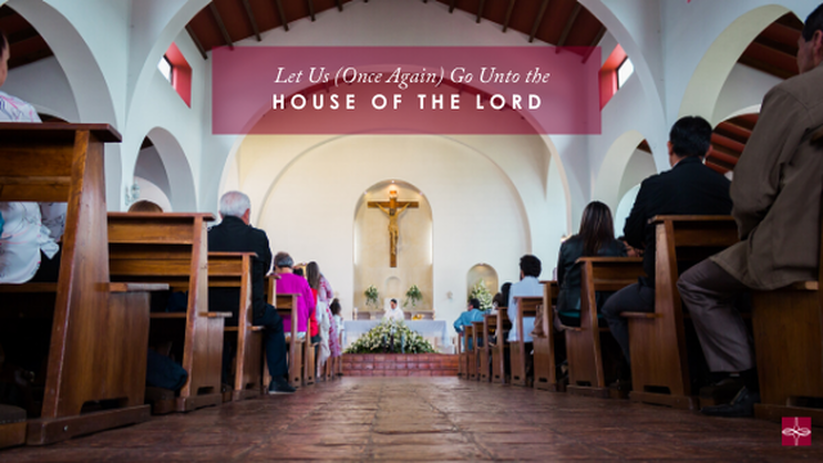

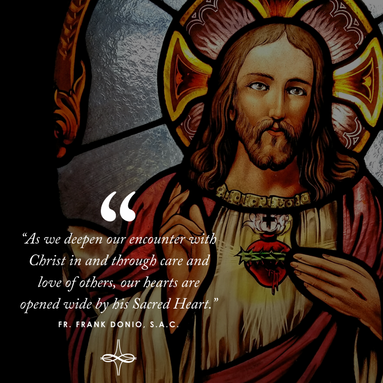
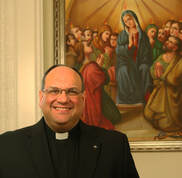
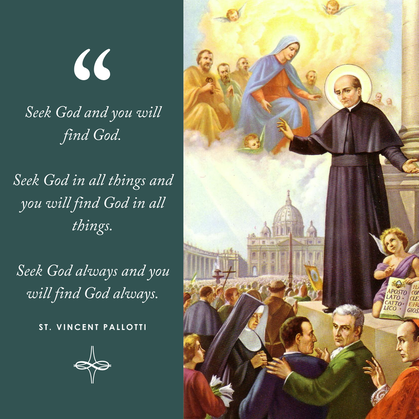
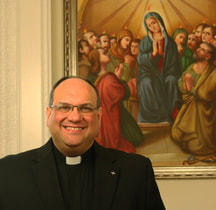
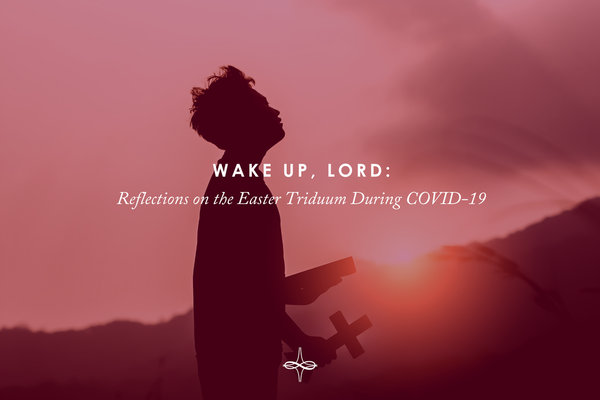


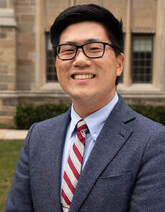
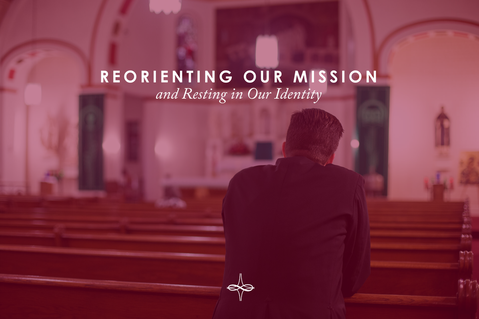
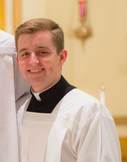
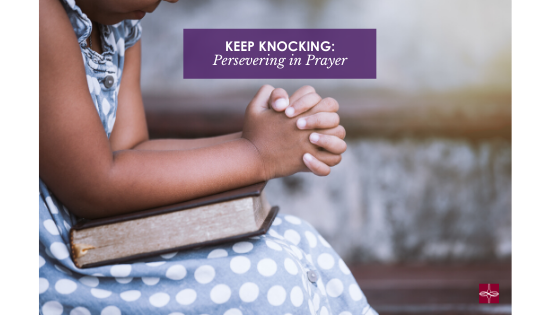
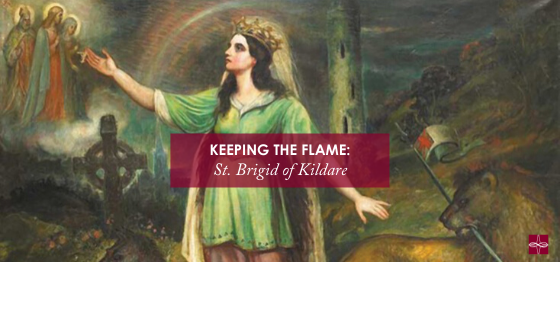

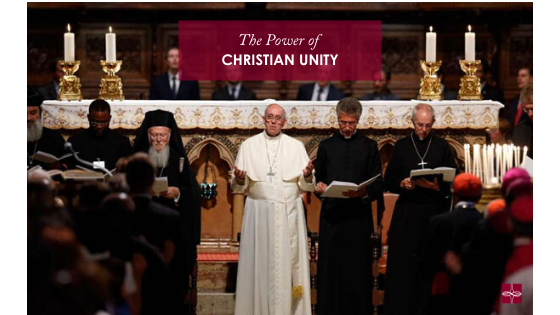

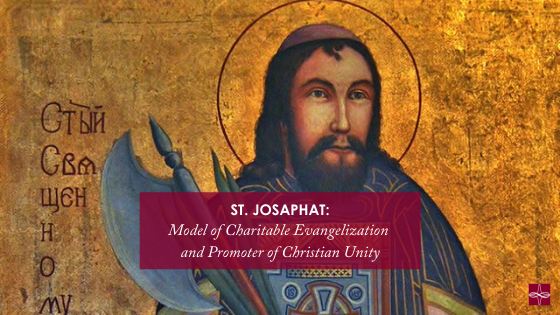

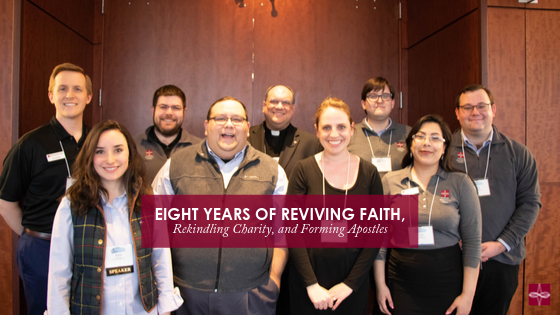
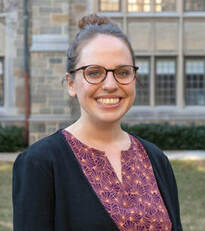

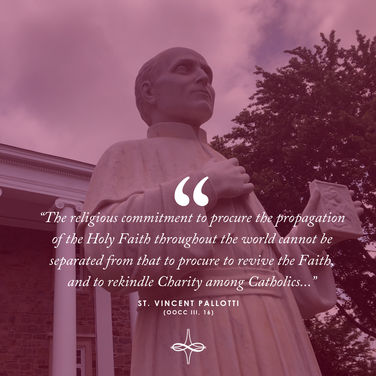
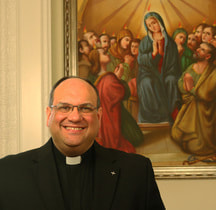
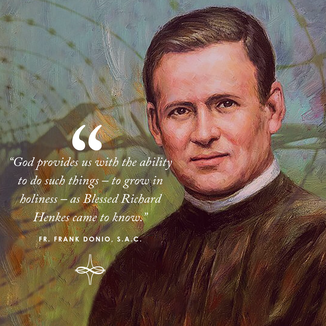
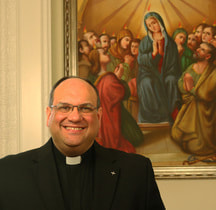
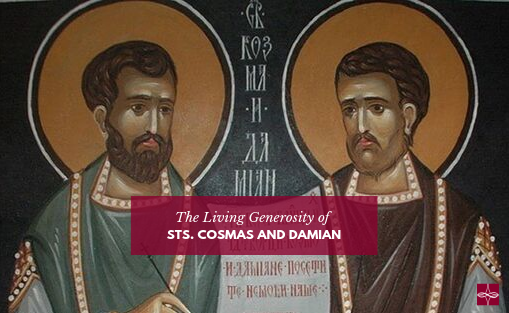

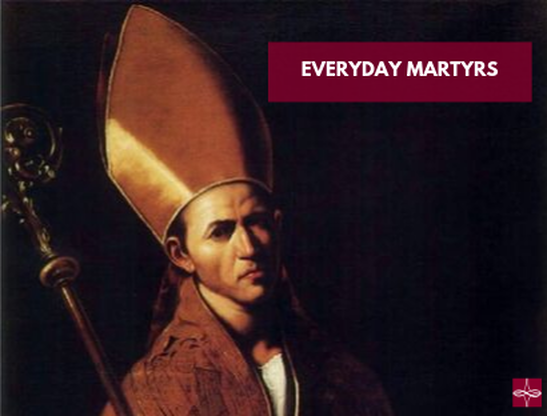

 RSS Feed
RSS Feed